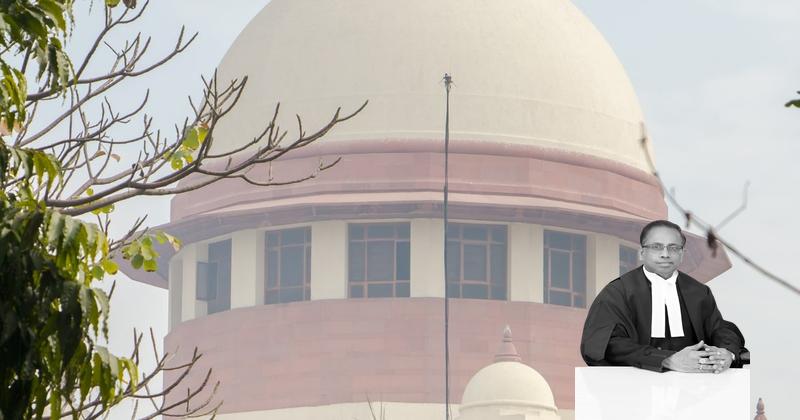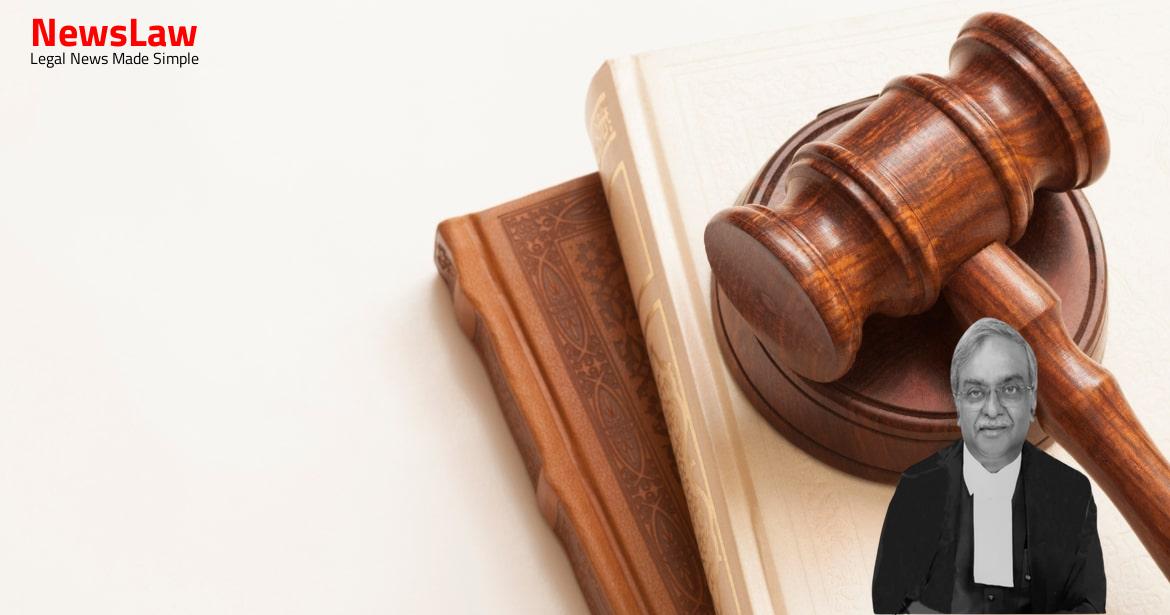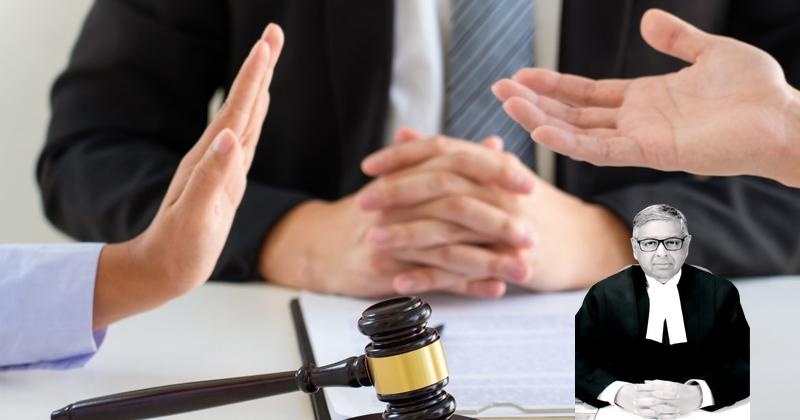Delve into the recent Supreme Court judgment review regarding the capital punishment appeal. This landmark case involves the confirmation of death penalty for the accused in a heinous crime. The Court’s decision has far-reaching implications for the legal landscape. Stay informed on the latest developments in the case.
Facts
- The criminal appeal filed by the petitioner had been dismissed by the Court previously.
- Evidence firmly established the presence of the petitioner at the scene of the incident and his involvement in the commission of rape on the prosecutrix.
- Evidence included testimony of the injured eye-witness and multiple dying declarations of the prosecutrix.
- The trial court convicted the petitioner and other accused under various sections of the IPC and imposed death penalty.
- The Review Petition has been filed by the petitioner-accused to review the judgment confirming the conviction and death penalty.
- The prosecutrix was shifted to Mt. Elizabeth Hospital in Singapore where she eventually died due to critical condition.
- The accused, including the petitioner, misbehaved and gang-raped the prosecutrix in a moving bus.
- PW-1 was beaten up by the accused with iron rods, and his clothes were torn off.
- The dying declarations of the prosecutrix named the accused including the petitioner.
- Evidence showed that the petitioner was the helper in the bus where the incident occurred.
- Medical evidence indicated that the petitioner could have caused a bite mark on the prosecutrix.
- DNA evidence linked the petitioner to the crime through matching profiles with the blood-stained clothes of the prosecutrix and PW-1.
- Recovery of items belonging to PW-1 at the behest of the petitioner further linked him to the crime.
- The accused also committed unnatural offenses and inserted an iron rod in the private parts of the prosecutrix.
- The prosecutrix’s dying declarations were recorded at Safdarjung Hospital in Delhi.
- The accused also took away belongings of the prosecutrix and PW-1 and threw them from the moving bus.
- The accused had filed Criminal Appeal Nos.609-610 of 2017 before this Court.
Also Read: Judgment on Service of Summons and Authenticity of Power of Attorney
Arguments
- The petitioner, through his counsel Mr. A.P. Singh, raised a general case against capital punishment, arguing that only the poor and downtrodden are more likely to face the death sentence.
- The petitioner’s family background and lack of criminal antecedents were highlighted to argue against being considered under ‘the rarest of rare cases’ deserving the death penalty.
- Previous contentions against death penalty based on its abolition in other countries were dismissed in earlier review petitions.
- The petitioner argued that death penalty violates human rights, the right to life, and the principle of non-violence.
- Concerns were raised regarding the dying declarations, specifically questioning the validity and reliability of the second dying declaration.
- The petitioner’s counsel contended that the investigation in the case was flawed and unreliable, seeking a review of the judgment.
- General contentions against capital punishment and the investigating agency’s professional skills were brought up in the petition.
- Grounds raised in the petition alleging improper investigation and manipulation of evidence are too general and not specific.
- Petitioner and other accused have been falsely implicated due to media pressure.
- Contentions raised against the investigation process include recording of witnesses’ statements under Section 161 Cr.P.C., manner of arrest of the accused, and conduct of test identification parade being doubtful.
- The contentions against the investigation have been raised at trial court, High Court, and this Court, but have all been thoroughly considered and rejected.
- The learned counsel’s contention against the investigation lacks merit.
Also Read: Balaji v. Nargolkar: Auction Sale Set Aside
Analysis
- Scope of review is limited and review cannot be entertained except in cases of error apparent on the face of the record.
- Article 137 of the Constitution of India empowers the Supreme Court to review any judgment pronounced or made.
- Review is subject to the provisions of any law made by the Parliament or any rule made under Article 145 of the Constitution of India.
- Order XLVII Rule 1 of Supreme Court Rules, 2013 governs the review process.
- The Court may review its judgment or order.
- No application for review will be entertained in a civil proceeding except on the ground mentioned in Order 47 Rule 1 of the Code.
- In a criminal proceeding, review is only allowed on the ground of an error apparent on the face of the record.
- The plea of alibi taken by the petitioner is rejected as an afterthought.
- The contentions raised by the petitioner, such as the CCTV footage examination, false implication of a bus, and detention of a witness, were previously considered and rejected.
- Allegations of bribery towards a witness do not affect the credibility of the evidence.
- Opinions expressed in a book by Sunil Gupta and subsequent events raised in the review petition are not grounds for review.
- The Court affirmed the rejection of the plea of alibi based on the evidence provided.
- The Court did not find any error in the consideration of evidence and rejection of the plea of alibi.
- The Court considered the aggravating and mitigating circumstances along with affidavits submitted by the accused in deciding the death sentence.
- The use of an iron rod and absence of certain injuries were adequately addressed in the judgment.
- Arguments regarding the departure of the petitioner were refuted, and the plea of alibi was reaffirmed.
- Mitigating circumstances presented by the defense were outweighed by the aggravating factors, leading to the confirmation of the death penalty.
- The dying declarations of the victim were thoroughly analyzed by the Court to establish the credibility of the prosecution’s case.
- The scope and parameters of review jurisdiction were clearly defined, indicating that the same points cannot be raised repeatedly.
- The rejection of the alibi plea was upheld based on the evidence presented.
- Any conclusion reached by the Court upon the evaluation of evidence cannot be challenged in a review petition unless there is a clear error on the face of the record.
- In a review petition, the court cannot reappreciate the evidence and reach a different conclusion.
- Review can only be allowed if there is an error apparent on the face of the record leading to a miscarriage of justice.
- Repeating old arguments or minor mistakes are not sufficient grounds for review.
- Review is permitted only when there is a material error manifest on the face of the judgment.
- Scope of review is limited to errors apparent on the face of the record in criminal proceedings.
- Order XL Rule 1 of the Supreme Court Rules limits review grounds in criminal proceedings to errors apparent on the face of the judgment.
- No error found in the appreciation of evidence or findings of the judgment dated 05.05.2017
- Grounds raised in the review petition are repetitive of arguments in earlier petitions
- Repeated arguments cannot be raised again
Also Read: Jurisdiction of Family Court in Cases under Muslim Women’s Protection Act
Decision
- The review petition filed by the co-accused was dismissed on 09.07.2018 for lack of merit.
Case Title: AKSHAY KUMAR SINGH Vs. THE STATE NCT OF DELHI
Case Number: R.P.(Crl.) No.-000602-000603 / 2019



